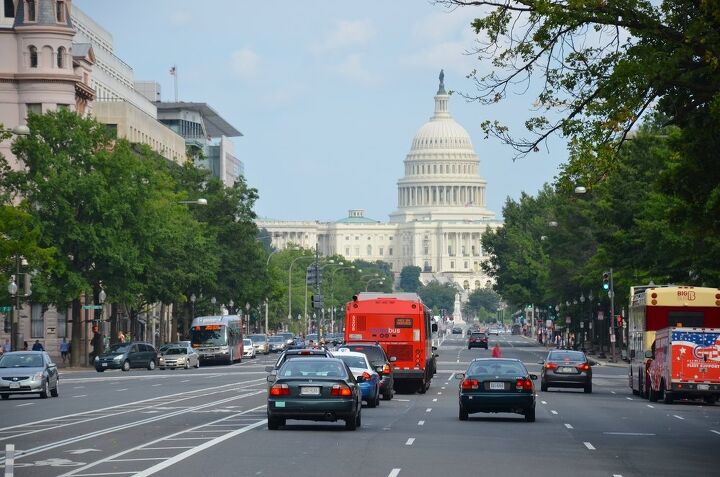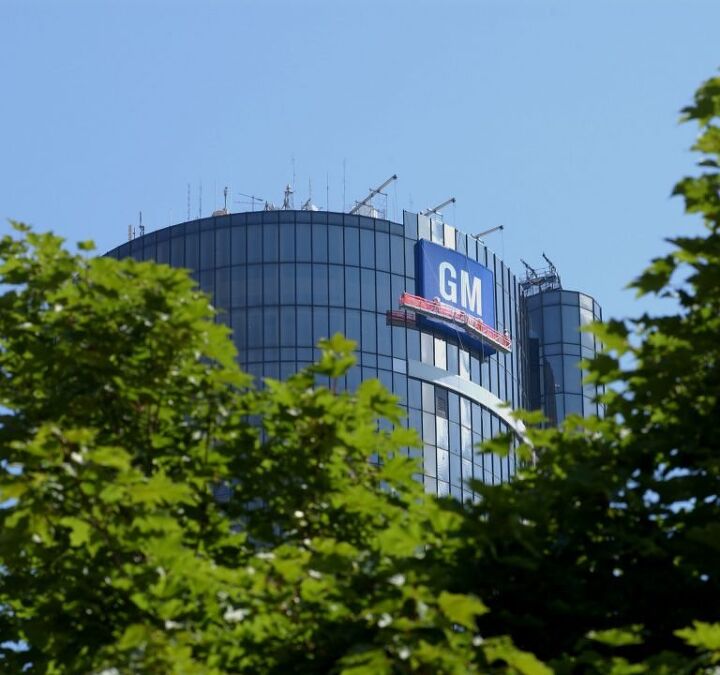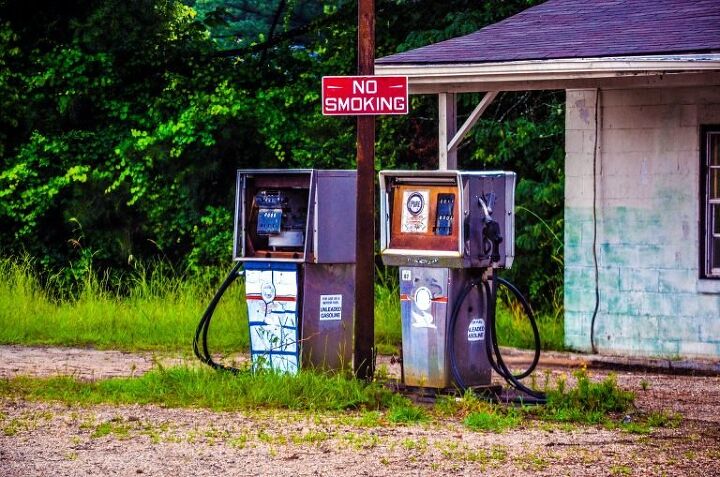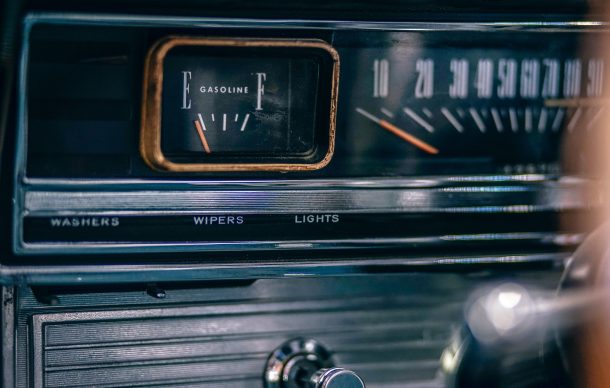#CaliforniaAirResourcesBoard
Gas War: EPA Says California Has Worst Air Quality in the U.S., Threatens to Cut Highway Funding
With California gearing up for a legal battle against federal regulators eager to revoke its fuel waiver, we knew it wouldn’t be long before another salvo was launched in the gas war. However, the latest skirmish is a bit personal. According to Automotive News, Environmental Protection Agency Administrator Andrew Wheeler issued a letter to to California Air Resource Board chief Mary Nichols on Tuesday that framed the Golden State as unfit to dictate U.S. environmental policy.
The letter claims California has “the worst air quality in the United States” and a backlog of implementation plans to address ambient pollution standards surpassing every other state in the union.
California is scheduled to receive over $4 billion in annual federal highway funding this October. Now, the EPA is claiming the state failed to enforce the U.S. Clean Air Act. As a result, the Trump administration is threatening to withdraw those funds if the region doesn’t take immediately action on 130 different state implementation plans.
Gas War: EPA Head Suggests Fuel Rollback May Have Some Wiggle Room
Environmental Protection Agency Administrator Andrew Wheeler weighed in on the gas war this week, issuing some firm language on the matter during a visit to Chattanooga, Tennessee. His words were softer upon returning to Washington, where he reminded everyone that the EPA has made no formal decisions on the matter and suggested there could still be room for compromise.
Unfortunately, locating that happy middle ground has been a bit of a problem. Despite the fuel economy rollback’s status as a proposal, hard lines have been drawn in the sand between the Trump administration and California’s regulatory bodies. The Golden State’s compromise was to delay the Obama-era targets by one year. California also recruited municipalities, U.S. states, and automotive manufacturers to pledge their support of the plan, resulting in a handful of carmakers finding themselves on the business end of an antitrust probe.
Meanwhile, the Trump administration’s compromise has been nonexistent. Wheeler’s words suggest that might be because everyone is still making up their minds… but not before he gently razzed the West Coast for being shortsighted an singleminded.
Gas War: Antitrust Probe Opened Into Automakers Endorsing California Emissions Pact
The Justice Department has opened an antitrust probe into four automakers that formed a pact with California to compromise on tailpipe emissions, effectively circumventing federal regulators, last July.
Over the summer, Ford Motor Co., Honda Motor Co., BMW AG and Volkswagen Group announced a joint agreement with the California Air Resources Board to adhere to fueling standards slightly lower than Obama-era rules but still significantly higher than the Trump administration’s proposal from 2018. The Justice Department is seeking to determine whether or not that qualifies as a violation of federal competition laws.
Four Automakers Make a Deal With California Regarding Vehicle Emissions
While we’ve dinged the media for erroneously reporting that automakers were unilaterally “backing” California in the fuel-economy fracas that’s currently taking place within American politics, it appears four of them actually are starting to choose a side. However, this again requires a bunch of clarification. Despite not adhering fully to the state’s ideal emissions scenario, Ford Motor Co., BMW Group, Volkswagen Group, and Honda Motor Co. released a joint announcement stating they have reached a voluntary agreement with the state of California to adopt compromised vehicle emissions rules.
Since there’s nothing binding in the joint agreement and automakers make (and break) promises all the time, the deal is largely meaningless. Doubly so, since the fuel-economy rollbacks have yet to be finalized. But this does illustrate how a handful of manufacturers are willing to accommodate others in order to get a nationwide solution. It also shows a softening of California’s previously ironclad environmental stance, which is much more interesting.
Mild Misinformation About the Gas War: Governors Unite, Automakers Compromise
On Tuesday, 23 governors signed a joint statement urging the Trump administration to reconsider the proposed rollback of Obama-era fueling regulations. Led, unsurprisingly, by California Governor Gavin Newsom, the letter suggests a “common-sense approach” to national requirements with an emphasis on rising standards.
A minor update in the gas war to be certain — and yet annoyingly framed by a large portion of the media as a victory for California when the realities are far more complicated. To be frank, we’re getting pretty tired of these lopsided takes. This whole thing is a regulatory and political quagmire… on all sides.
Gas War Watch: EPA and CARB Leadership Won't Even Share the Same Table
Capitol Hill was the scene of some high-school drama this week after representatives from the Environmental Protection Agency (EPA) and the California Air Resources Board (CARB) reportedly refused to sit at the same table while discussing fueling regulations with the U.S. House Energy and Commerce Committee.
As petty as this seems, it illustrates the overall situation rather well. White House officials terminated talks with California in February, citing an inability to progress the debate. Meanwhile, CARB has been claiming the Trump administration doesn’t want to hear its case and has instead sought to strip the state of its ability to self regulate in order to pass reforms that would freeze national emissions standards at 2020 levels though 2026.
Thursday’s congressional bickering helped paint a clearer picture of what the communications breakdown looked like.
Gas War Watch: UAW Goes to Congress, Sides With Automakers on Fuel Economy Rollback
The United Auto Workers is spending Thursday telling Congress that the union opposes the Trump administration’s proposal to freeze fuel efficiency requirements at 2020 levels through 2026… sort of. While the UAW expressed moderate environmental concerns in the past, most of its opposition to the rollback has revolved around corporate investments into the industry. In fact, the union’s research arm called fuel economy the auto industry’s “future” in 2018.
This time around, the UAW seems to be singularly focused on business aspects. According to a prewritten testimony, UAW Legislative Director Josh Nassar intends to tell two subcommittees of the U.S. House Energy and Commerce Committee that the union is in line with automakers’ concerns about the proposal leading to “protracted litigation and uncertainty in the industry that will limit growth.”
The Great Gas War: House Committee Plans Hearing On Fuel Efficiency Rollback
On Tuesday, the House of Representatives Energy and Commerce Committee said it will schedule a hearing on June 20th regarding the Trump administration’s proposal to roll back automotive efficiency standards. The decision comes from Committee Chairman Frank Pallone, Jr. (D-NJ), Consumer Protection and Commerce Subcommittee Chair Jan Schakowsky (D-IL) and Environment and Climate Change Chairman Paul Tonko (D-NY) — all of whom are in clear opposition to the suggested plan.
The groups will hold a joint hearing to discuss Corporate Average Fuel Economy (CAFE) standards and carbon pollution regulations affecting light duty vehicles as they relate to the current administration’s plan to effectively freeze efficiency targets between 2020 to 2026.
Meet Us in the Middle: Automakers Plead for Peace, Compromise Between White House and California
The automotive industry is in turmoil. There’s an industrywide push toward electrification that has yet to prove itself as truly profitable, volume seems to be tapering off in the developed world, and emissions regulations aimed at improving air quality are operating counter to existing consumer tastes. As a result, automakers are scrambling to find the best path forward.
In 2017, that path involved encouraging the new U.S. president to roll back Obama-era fuel economy mandates, thus providing some breathing room and staving off fines as automakers began to realize they wouldn’t be able to meet tightening targets. The administration listened, leading to a proposal that would effectively freeze mileage standards at about 37 miles per gallon — rather than the previously decided 54.5 mpg — by 2025.
However, California and a coalition of supportive states claim they won’t be going along for the ride. This group says it will maintain the old standards, regardless of what the White House says. The staredown has automakers worried; they’ve now banded together to issue a letter asking both sides to calm down and keep talking.
White House to Automakers: Choose a Side in the Great Gas War
The Trump administration has long been at odds with California and a coalition of supportive states that hope to block the rollback of Obama-era fueling regulations the current Environmental Protection Agency deems “unsustainable.” The EPA also says it’s inconsistent with consumer behavior. But automakers have behaved somewhat erratically on the matter, forcing the president to request (by proxy) that they make up their minds and pick a side before a final decision is made.
While industry leaders previously backed the more stringent regulatory framework set in place by the former president, they quickly converged on Washington after Trump assumed office in 2017, requesting a softening of Corporate Average Fuel Economy standards. After blowback from California and environmental activists, automakers took a more measured approach, publicly stating that they support green initiatives and reducing their own carbon footprint — and suggesting that a national deal be reached that pleases all parties.
Fence-sitting time might be over.
GM: Current Fuel Economy Rules 'Not Technologically Feasible'
General Motors appeared to endorse the Trump administration’s fuel economy rollback, at least to some degree. In a federal filing made public on Monday, the largest U.S. automaker said Obama-era rules that targeted fleetwide fuel efficiency in excess of 50 miles per gallon by 2025 were “not technologically feasible or economically practicable.”
Interesting, considering GM CEO Mary Barra recently called for for the adoption of a national zero-emission vehicle strategy. However, the document also had GM saying it was “troubled” that the current administration appears so keen to abandon federal incentives on electric vehicles after the 2021 model year.
California Preps Formal Response in Gas War, Calls MPG Rollback 'Unlawful'
California and 18 other states plan to formally vent their grievances over the Trump administration’s proposal to freeze fuel economy standards at 2020 levels on Friday. The Environmental Protection Agency (EPA) and National Highway Traffic Safety Administration (NHTSA) have called for public comments on the matter, with the deadline taking place at the end of this week. Apparently, California wants its voice to be the last one heard.
“They are grossly derelict in not trying to move the dial forward in cleaning the air and the environment,” California’s attorney general Xavier Becerra said in a conference call with reporters on Wednesday. “The situation continues to get worse and requires action now, and not for us to stand pat.”
California Prepares Counteroffensive in Great American Gas War, Asks Automakers For Ammo
California is considering a formal, public counter-proposal to the Trump administration’s proposed rollback of the existing fuel economy requirements for passenger vehicles. Gearing up for the launch, the state has requested that automakers present detailed information on their future products and explain why they’re seeking relief from fueling mandates they previously agreed to adhere to.
“They’ve never submitted to us any information that would back up those claims in any detail to help us craft a solution,” Mary Nichols, chair of the California Air Resources Board, (CARB), said in a Thursday interview with Bloomberg.
VW's Electrify America Plots Second Batch of EV Charging Stations, Plug-in Propaganda
Volkswagen’s court-mandated subsidiary, Electrify America, has announced its second investment of $200 million into the nation’s electric vehicle charging infrastructure, and not a moment too soon. Plug-in car sales in the United States have already surpassed last year’s record of nearly 200,000 deliveries, thanks to Tesla’s rollout of the Model 3, and we’ve still got three months left to go.
Of course, it wouldn’t really matter if EV sales tanked in 2018 because VW is legally obliged to do this. There could have been a single, lonesome plug-in sale this year and Electrify America would still have to spend the same amount — as per its parent company’s agreement with the U.S. government. This time around, the goal is to improve charging infrastructure between cities while not ignoring major metropolitan areas. Cycle 2 will also focus primarily on California for the next 30 months, which is probably for the best. The state accounts for over half the country’s yearly EV sales.
States' Rights: EPA Seeks '50-State Solution' for Fuel Rules, California Happy to Settle for 16
Andrew Wheeler, the acting head of the Environmental Protection Agency, said the United States needs a single standard for fuel efficiency for cars and trucks on Tuesday. It’s a sentiment shared by Mary Nichols, head of California Air Resources Board, but it’s likely to put the two at odds. Wheeler said the pair shared that singular goal based off a meeting held last week, but California isn’t seeking the same benchmarks as the current administration.
The state objects to the EPA’s plan to weaken Obama-era efficiency targets, and is currently in the midst of a political and legal battle with the agency. However, Wheeler confirmed that, under his watch, the group would continue seeking a “50-state solution.”




























Recent Comments